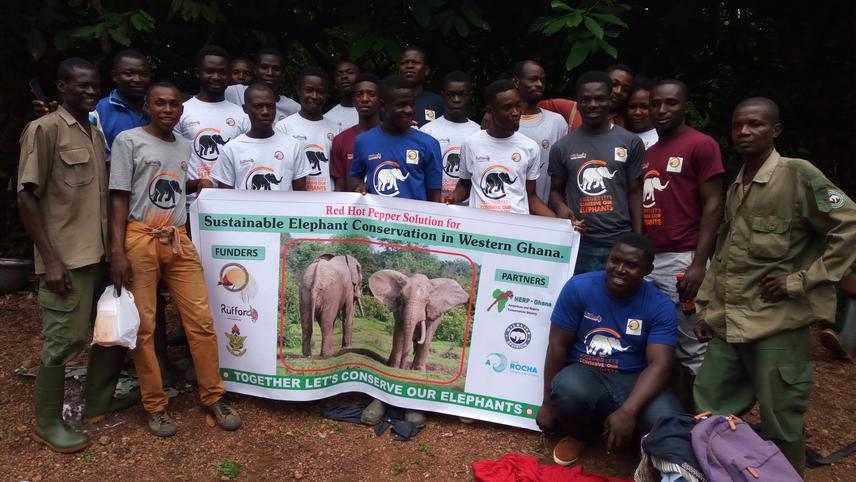Alesia Ofori
This project aims to drastically reduce the incidence of human-elephant conflicts in the Bia-Goaso biodiversity hotspot by using local red chili technology to ward elephants from farms. The project will also build the capacity of local wildlife staff to better handle and resolve human-wildlife conflicts.

The Bia-Goaso Forest Block (BGFB) in South-Western Ghana is a proposed trans-frontier corridor for elephants moving between forest reserves in Ivory Coast and Ghana, and one of the five priority hotspots for biodiversity conservation in Ghana. The site is home to only viable population of forest elephants in Ghana, with estimated population of elephants is estimated to be about 250 individuals. This makes the population a prime focus for immediate conservation attention nationally and internationally. However, these elephants have been targets for retaliation killings in recent times following crop raiding and human killings. The situation threatens the critical elephant population, food security and human lives.
This project aims to reduce drastically the human-elephant conflicts in this hotspot by using local red chili technology to ward elephants from farms. The project will also build the capacity of local wildlife staff to better handle and resolve human-wildlife conflicts. The project will contribute to increasing awareness and soliciting community support and cooperation in elephant conservation. Importantly, the project will ensure a renewed interest in elephant conservation locally and nationally.
In addition to the project objectives, we will introduce bee-keeping, which will serve a double purpose of providing alternative livelihood incomes for farmers whilst preventing elephants from raiding farms and getting killed. This we hope will serve us incentive for farmers to support elephant conservation efforts.
In the long term, the project will ensure the long-term survival of the only viable population of elephants in Ghana.